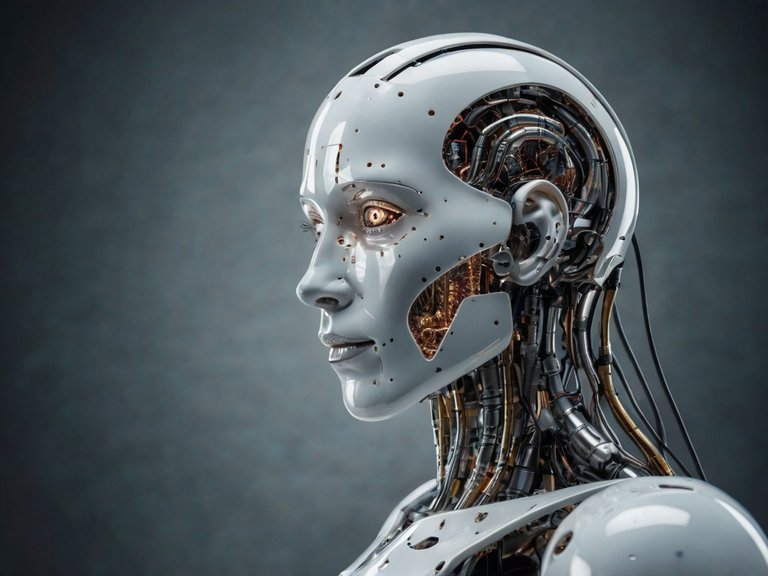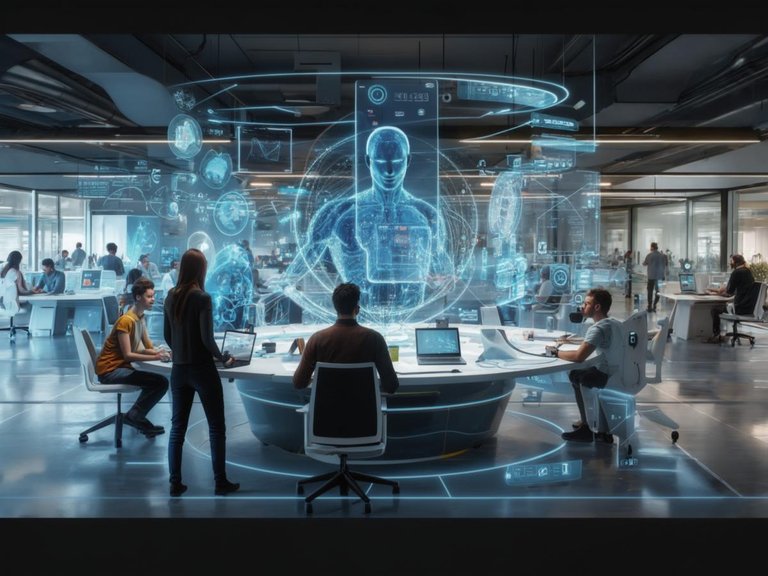Does Artificial Intelligence Kill Critical Thinking?

Artificial intelligence (AI) has transformed the way we learn, work, and perceive the world. From chatbots that answer our questions in an instant to algorithms that predict our preferences, AI is everywhere. Yet, as its influence grows, a pressing question emerges: does this technology enhance or undermine our ability to think critically? In this article, we’ll explore this issue by examining both the benefits and risks of AI, as well as the human role in an automated age.
What Is Critical Thinking and Why Does It Matter?
Critical thinking is the ability to analyze information, assess its reliability, draw conclusions, and form independent opinions in a conscious and reasoned way. It’s not just about accepting facts—it’s about asking questions like “Why?”, “What’s the evidence?”, and “Is there another perspective?” As philosopher Daniel Dennett puts it, critical thinking is “the art of being skeptical of your own beliefs.” It underpins education, science, and democratic societies by enabling us to distinguish truth from falsehood and make informed decisions.
In a world overflowing with information—both credible and misleading—critical thinking is more vital than ever. Without it, we risk falling prey to manipulation or intellectual stagnation.
AI in Education: A Boon or a Threat?
In education, AI offers remarkable possibilities. Chatbots like me can instantly provide answers to students’ questions, while educational apps like Duolingo or Khan Academy tailor content to individual needs. Research from the University of Southern California (2023) shows that students using AI tools improve their academic performance by an average of 15% compared to traditional methods.
But this convenience comes at a cost. If students rely on AI for ready-made answers, they may lose the drive to seek knowledge independently. For instance, when a chatbot solves a math problem step-by-step, a student might memorize the solution without grasping the underlying logic. Professor Sherry Turkle of MIT, in her book Reclaiming Conversation (2015, updated 2022), warns that over-reliance on technology can lead to “cognitive laziness”—a state where we stop exercising our analytical skills.
On the flip side, advocates like Sal Khan, founder of Khan Academy, argue that well-designed AI tools can foster critical thinking if they pose thought-provoking questions rather than just delivering answers. The key lies in how we use the technology.

AI in the Workplace: Automation vs. Creativity
In the workplace, AI is taking over routine tasks—from data analysis to report generation. A 2024 McKinsey Global Institute report suggests that automation could boost corporate productivity by up to 30%. Workers gain time for more strategic pursuits, which, in theory, should encourage innovation.
Yet there’s a danger that excessive dependence on algorithms could weaken problem-solving skills. Take the financial sector, where analysts increasingly lean on AI-generated forecasts. When systems fail—as seen with faulty market predictions in 2022—a lack of critical judgment can lead to costly errors. A Harvard Business Review study (2023) found that in highly automated firms, employees are less likely to challenge machine-made decisions, reducing their adaptability and independence.
However, AI can also amplify human creativity. In design, tools like MidJourney inspire artists with fresh ideas, though it’s still the human who decides how to apply them. Striking a balance between technology and human judgment is essential.
Disinformation and Echo Chambers: The Pitfalls of Algorithms
One of AI’s greatest challenges is its role in spreading disinformation. Social media algorithms on platforms like X or TikTok prioritize content that aligns with users’ preferences, creating so-called echo chambers. A 2022 MIT study revealed that users surrounded by personalized content are 40% less likely to seek out alternative viewpoints.
Moreover, advances in generative AI, like GPT-4, and deepfake technology enable the creation of false narratives on an unprecedented scale. In 2023, a fabricated AI-generated video of a politician in a compromising situation went viral before being debunked. Such manipulations make it harder to critically assess reality, especially if we lack the time or skills to verify sources.
That said, AI can also combat disinformation. Tools like Factmata and Google’s algorithms detect suspicious content with growing accuracy. The catch? These solutions aren’t yet widely accessible or foolproof.
Benefits and Risks: Two Sides of the Coin
AI holds immense potential to support critical thinking. It can provide data, simulations, and alternative perspectives that enrich our analysis. In medicine, for example, algorithms assist doctors in diagnosing diseases, but it’s the human who interprets results in the context of a patient’s unique case. A 2024 Nature study found that AI-supported medical teams achieve 20% better diagnostic outcomes than those working alone.
On the downside, the risks are tangible. Over-reliance on technology could atrophy our analytical abilities, while AI’s omnipresence—from voice assistants to Netflix recommendations—encourages passivity. As psychologist Jonathan Haidt notes, “When everything becomes too easy, we lose the capacity for mental effort.”

The Human Role: Mastering Technology
Amid this debate, one truth stands out: humans must remain in control of technology. AI isn’t self-aware—it operates based on data and algorithms we create. Thus, it’s up to us to hone our critical thinking, asking questions, challenging outputs, and seeking context. Education should emphasize using AI as a tool, not an oracle.
Finland offers a model worth emulating. Since 2020, its schools have taught students the basics of AI and critical information evaluation from an early age. The result? Finnish youth rank among the top globally in analytical skills (PISA, 2023).
Conclusion: The Future of Critical Thinking
Does artificial intelligence kill critical thinking? The answer isn’t black-and-white. AI can be both a threat and an ally—it all depends on how we wield it. If we let it become a crutch for our minds, we risk losing our capacity for independent analysis. But if we treat it as a tool to fuel our curiosity and creativity, it could unlock new horizons.
The future of critical thinking in the AI era demands deliberate effort. As Albert Einstein once said, “I’m not worried about artificial intelligence; I’m worried about the lack of human wisdom.” It’s up to us to ensure that in a tech-driven world, we retain the ability to think—not just quickly, but deeply.
Posted Using INLEO